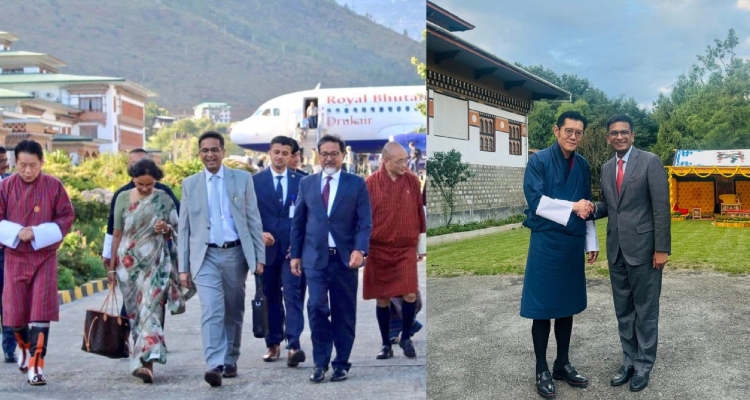
A month before his retirement, Chief Justice of India D.Y. Chandrachud expressed his reflections and concerns during a speech at the 3rd convocation ceremony of the Jigme Singye Wangchuck School of Law in Bhutan.
He candidly shared his anxieties about his tenure and the legacy he would leave, asking himself, “Did I achieve everything I set out to do? How will history judge my tenure?”
He stated, “Pardon me for being a little vulnerable,” he began, noting that with his tenure coming to an end in November, he has been preoccupied with thoughts about the future and the past. Despite these uncertainties, he found solace in his commitment to serve the nation with dedication over the past two years. “Once you have faith in your intentions and abilities, it’s easier to value the journey rather than obsess over outcomes.”
Chief Justice Chandrachud’s tenure has been marked by significant reforms that have modernized the Indian judiciary, utilizing technology to bridge the gap between citizens and the legal system. His leadership has led to landmark judgments upholding personal liberties, women’s rights, and environmental protection.
Reflecting on his journey, he shared insights on personal growth and self-care, emphasizing the importance of prioritizing well-being while pursuing goals.
“As you navigate your own journeys, do not be afraid to step back and ask: ‘Am I running towards a destination, or am I running towards myself?’” he advised, highlighting the need for purpose-driven leadership.
Towards the end of his speech, he quoted Rudyard Kipling’s poem “If,” encapsulating the essence of resilience and integrity. He urged the new graduates to uphold these values as they enter the legal profession.
Addressing pressing global issues, Chief Justice Chandrachud underscored India’s urgent need for environmentally conscious lawyers trained in climate change law, especially in light of the unprecedented climate crisis. He challenged misconceptions that traditional values are opposed to modern democratic ideals, asserting that India’s Constitution integrates local governance with contemporary political thought.
He also praised Bhutan’s constitutional emphasis on environmental stewardship, noting that it requires every citizen to protect natural resources for future generations. “The success of this institution will be a milestone not just for this community but also for the global legal community,” he concluded, recognizing the unique blend of modern legal education with Bhutan’s rich cultural values.




